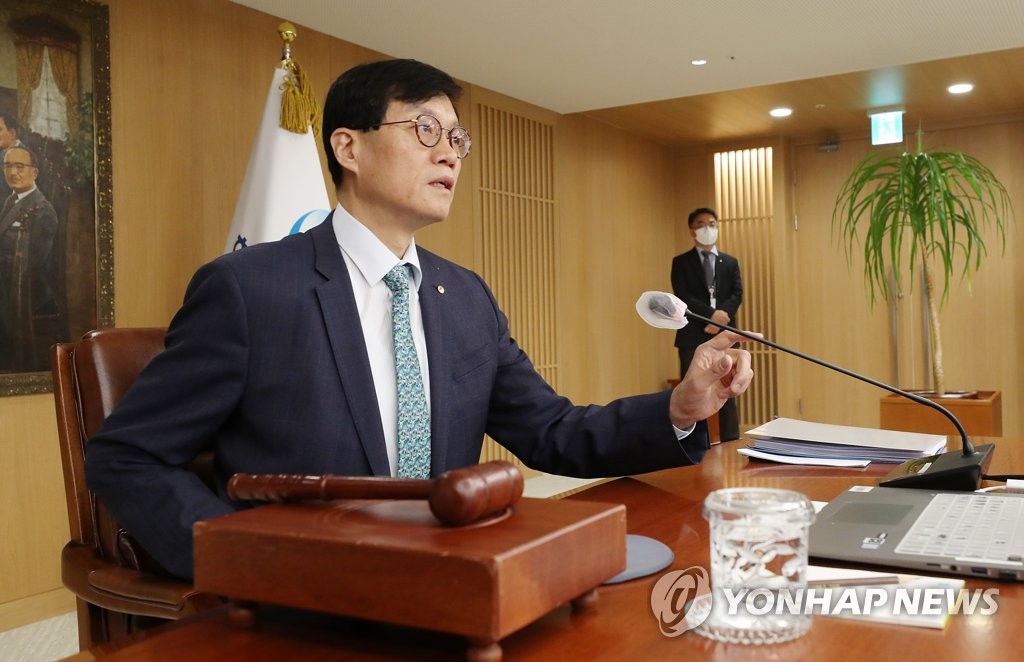BOK freezes rate, lowers growth outlook amid economic uncertainty

SEOUL, Feb. 23 (Yonhap) -- South Korea's central bank on Thursday kept the benchmark interest rate unchanged for the first time in 10 months as worries are growing that aggressive monetary tightening could hurt economic growth.
The monetary policy board of the Bank of Korea (BOK) held a meeting and decided to hold the benchmark seven-day repo rate steady at 3.5 percent.
This marked the first time that the BOK has stood pat following seven straight increases delivered since April last year as it has grappled with inflation.
The central bank also lowered its growth outlook for this year to 1.6 percent from a 1.7 percent rise predicted three months earlier, while revising down its inflation projection from 3.6 percent to 3.5 percent.
"It is forecast that inflation will continue to be above the target level (of 2 percent) throughout the year although it is projected to gradually decrease, and uncertainties surrounding the policy decision are also judged to be high," the BOK said in a statement.
"The board, therefore, sees that it is appropriate to judge whether the base rate needs to rise further while assessing the pace of inflation slowdown and developments in the uncertainties."
Thursday's rate freeze came amid rising worries that aggressive monetary tightening that has been enforced over the past 1 1/2 years could excessively cool down growth.
The BOK began its rate-lifting cycle in August 2021 after keeping borrowing costs at record lows to bolster the pandemic-hit economy. It has since raised the benchmark rate by a combined 3 percentage points.
The BOK has recently said it is necessary to take time to appraise the ramifications of those rate increases on the economy.
On Tuesday, the BOK said in a policy brief to lawmakers that the benchmark interest rate has been raised to a "restrictive level" and future monetary policy decisions will be made after closely analyzing not just inflation but also economic growth and other various factors.
South Korea's inflation appears to be easing in recent months, but it remains much higher than the central bank's midterm target range of 2 percent.
In January, the country's consumer prices rose 5.2 percent on-year, a figure that stays far below a 6.3 percent rise in July last year, the fastest pace in almost 24 years.
Successive rate increases have generated fears that they could hurt the economy, already faced with uncertainty stemming from the global recession, possibly prompted by monetary tightening in the United States and slumping exports, a main driver of South Korea's economic growth.
The country's exports shrank 16.6 percent on-year in January, following a 9.5 percent on-year fall the previous month, according to government data.
Delivering a quarter-point rate hike last month, the central bank worried that economic growth is expected to fall below its November projection, citing a global recession and the impact of steep rate hikes on the overall economy.
kokobj@yna.co.kr
(END)





